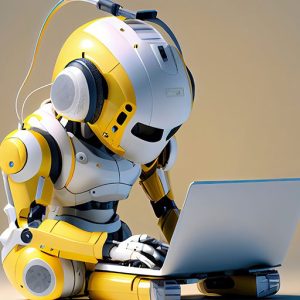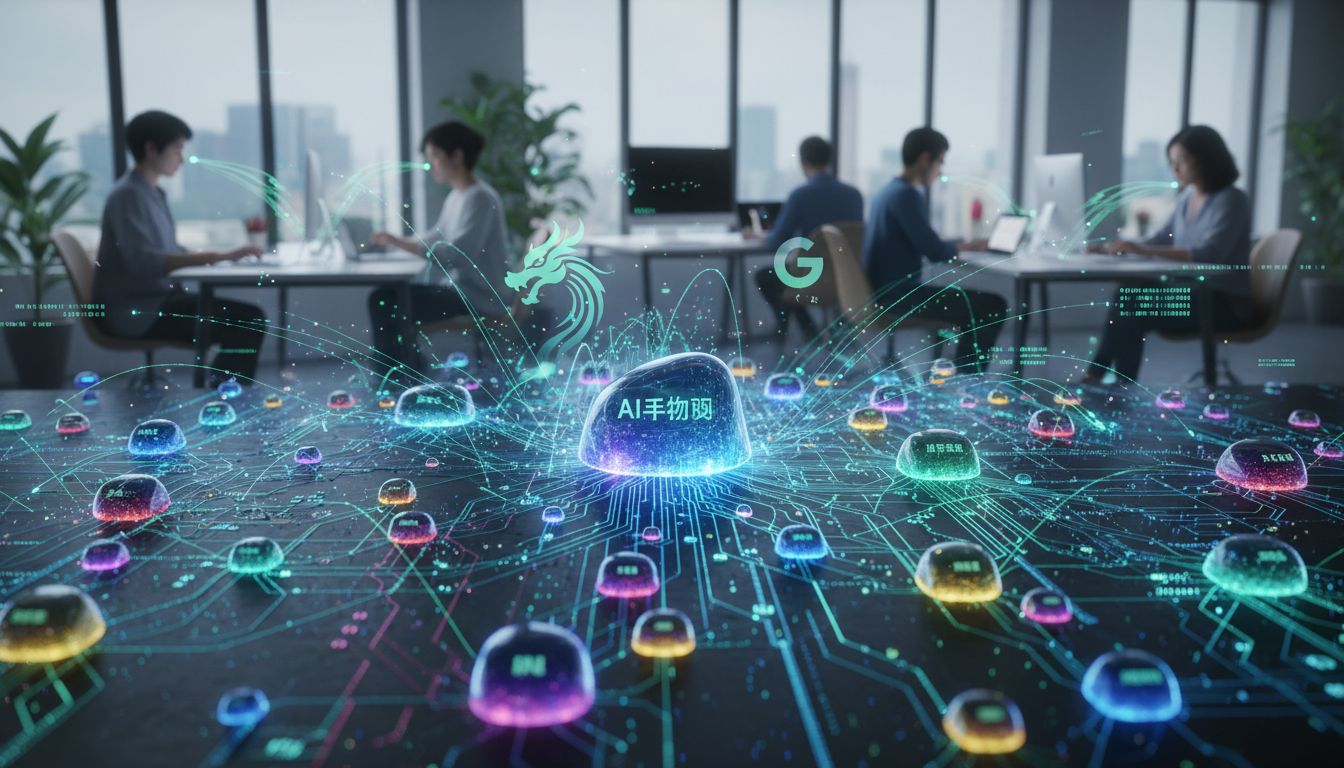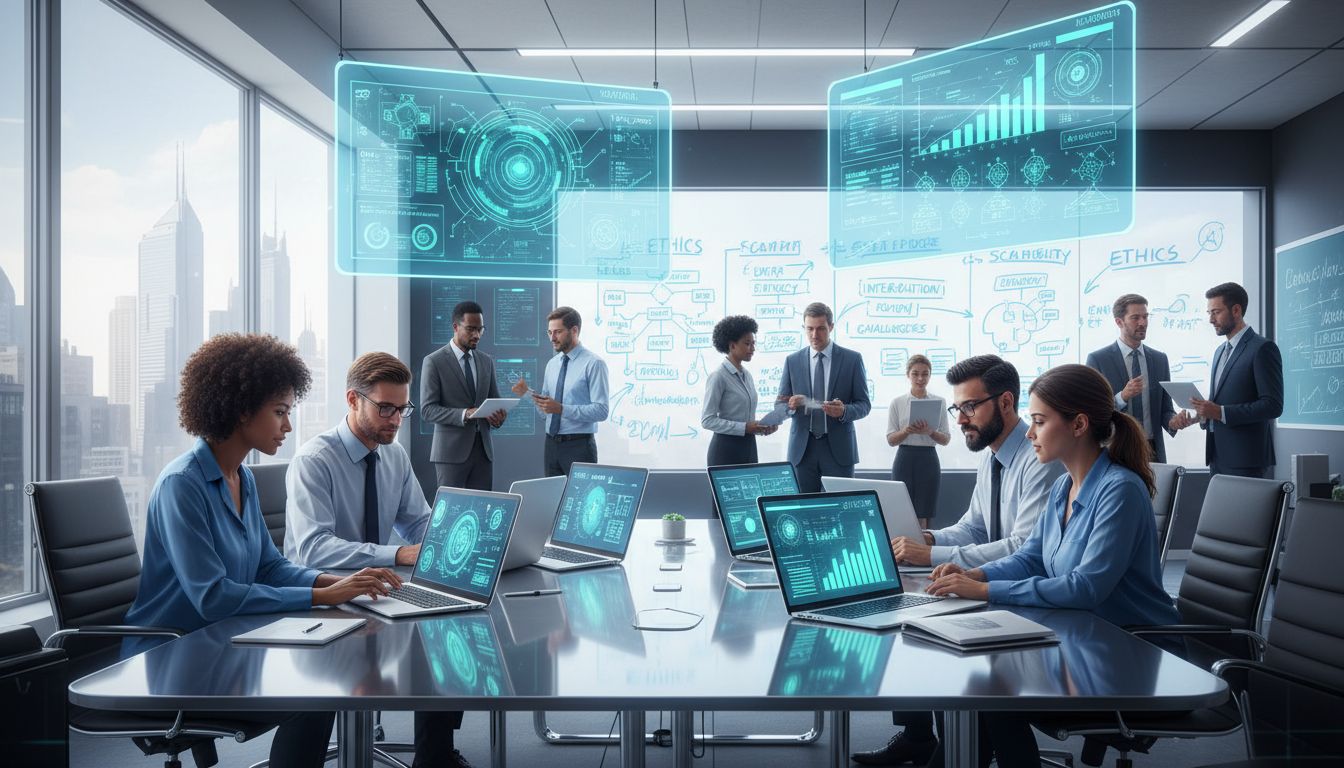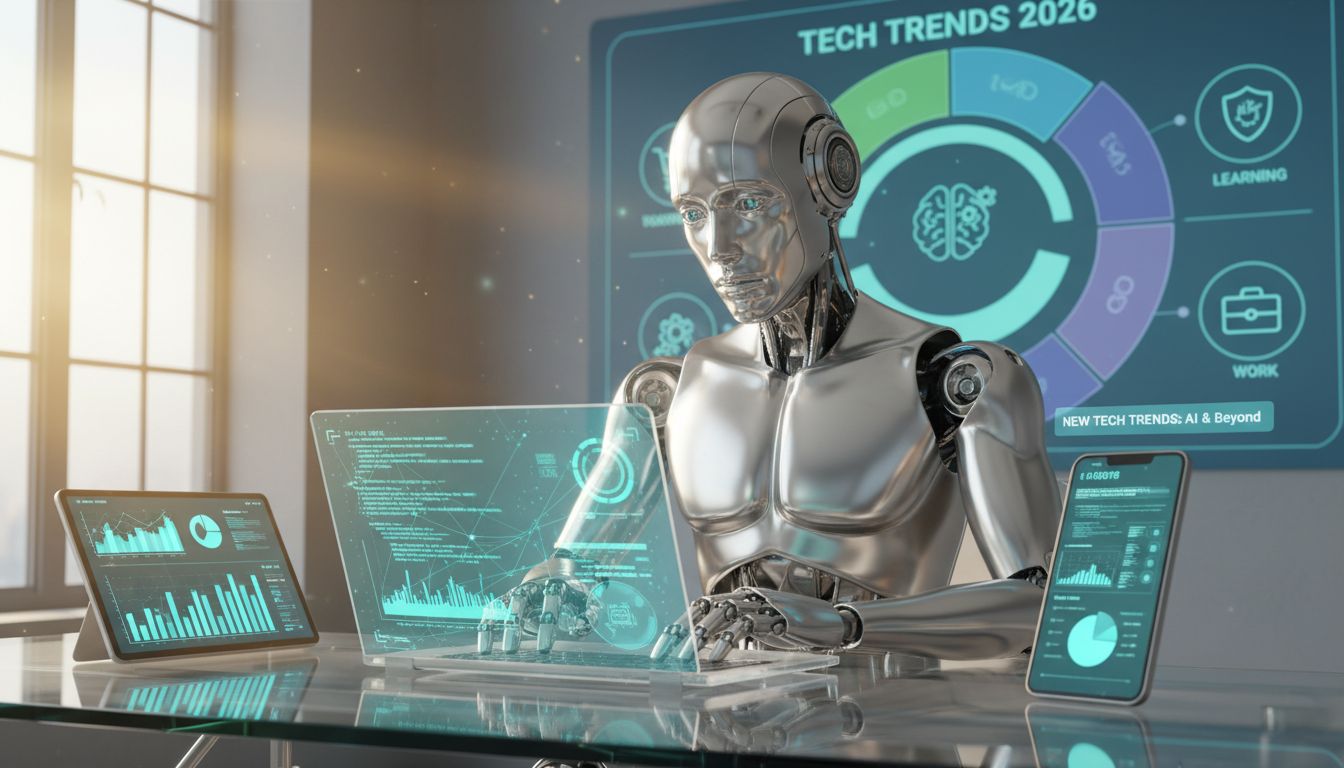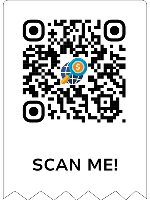You’ve seen the movies where a rogue computer becomes self-aware and decides humanity is the problem. It’s a scary thought, one that can cause anxiety about your job security. The conversation around the impact of AI on jobs often feels just as dramatic, filled with headlines about mass unemployment and rising job losses.
Is an AI really about to take your place at work? The truth is a lot less Hollywood and much more nuanced. A closer look at how artificial intelligence will affect jobs reveals a picture of significant change, not complete replacement across the labor force.
Table Of Contents:
- The Real Conversation We Should Be Having About AI and Jobs
- Which Jobs Are on the Chopping Block? A Look at the Data
- But It’s Not All Doom and Gloom: The New Jobs AI is Creating
- A Deeper Look at the AI Impact on Jobs by Industry
- How to Stay Relevant in the Age of AI
- Conclusion
The Real Conversation We Should Be Having About AI and Jobs
Forget the scary headlines for a minute. The panic over artificial intelligence is distracting from a more important discussion.
This isn’t about an army of robots causing the unemployment rate to skyrocket overnight. It’s about a fundamental shift in how we work, a major technological disruption to the labor market.
Think of it less like an invasion and more like getting a new, incredibly powerful set of AI tools. A report from MIT’s Task Force on the Work of the Future found that AI is more likely to augment human jobs than to replace them entirely.
This means your role will likely see a changing job description. You might start using AI to handle routine tasks and tedious parts of your day. This change frees you up to focus on what humans do best: strategic thinking, creative problem-solving, and connecting with others.
Which Jobs Are on the Chopping Block? A Look at the Data
Let’s be honest. Some jobs are more vulnerable than others. If your daily work involves a lot of predictable, repetitive tasks, you should pay close attention to the changing job market.
AI excels at processing large amounts of information and performing rule-based functions. A study by Goldman Sachs suggests that as many as 300 million full-time jobs could be affected by AI automation. This analysis looks at an occupation’s tasks and determines its occupational exposure to AI.
Researchers calculate an exposure score for each occupation code based on how many tasks could be automated. Occupations with high scores are not doomed, but they are set for major changes. The jobs most exposed are the ones where a machine can learn the patterns and complete tasks faster and more accurately than a person.
| Occupation Field | Automation Exposure Level |
| Office & Administrative Support | High |
| Legal | High |
| Architecture & Engineering | Medium-High |
| Business & Financial Operations | Medium |
| Sales | Low-Medium |
| Education & Training | Low |
| Healthcare Practitioners | Low |
| Construction | Very Low |
This AI exposure doesn’t automatically mean elimination. It points to a need for people in these fields to adapt. It signals a shift in what skills will be valued most as AI usage becomes more common.
But It’s Not All Doom and Gloom: The New Jobs AI is Creating
Here’s the part of the story the scaremongers always leave out. For every old task that gets automated, new needs and new roles appear. Technological change has always worked this way, and so far, the jobs report data has not shown the mass layoffs many feared.
When ATMs appeared, people feared bank tellers would vanish. Instead, their jobs shifted from counting cash to focusing on customer relationships and selling more complex financial products. The World Economic Forum’s Future of Jobs Report consistently shows that while some roles decline, many new ones emerge, leading to overall job growth.
We are already seeing a growing demand for AI jobs that didn’t exist a few years ago. Think about prompt engineers who specialize in communicating with AI models to get the best results. Or consider AI ethicists who help guide the responsible use of these powerful AI technologies.
The demand for people who can build, manage, and creatively use AI systems is skyrocketing. This is good news for college graduates and younger workers entering the job market with modern skills. The key is to fully understand AI’s potential and position yourself to be part of the solution.
A Deeper Look at the AI Impact on Jobs by Industry
The changes from artificial intelligence are not one-size-fits-all. The way it affects a writer is very different from how it affects a manufacturing worker. Let’s break down how a few key sectors are adapting to this new reality.
The Creative Fields: Is Your Art Safe?
Generative AI tools like DALL-E and ChatGPT have sent ripples of fear through creative industries. Can a machine really write a better article or design a better logo? It’s a valid question for anyone whose work involves creative output.
Most creative professionals are finding AI to be more of a super-powered assistant. A writer can use generative AI to brainstorm ideas or overcome writer’s block. A graphic designer can use an image generator to create dozens of mockups in minutes, helping them reach a final design faster.
AI is handling the grunt work, not the genius. The human touch — strategy, emotional resonance, and a deep understanding of an audience — is still the most important ingredient. AI can’t replicate that kind of soul, which is built on lived experience and genuine connection.
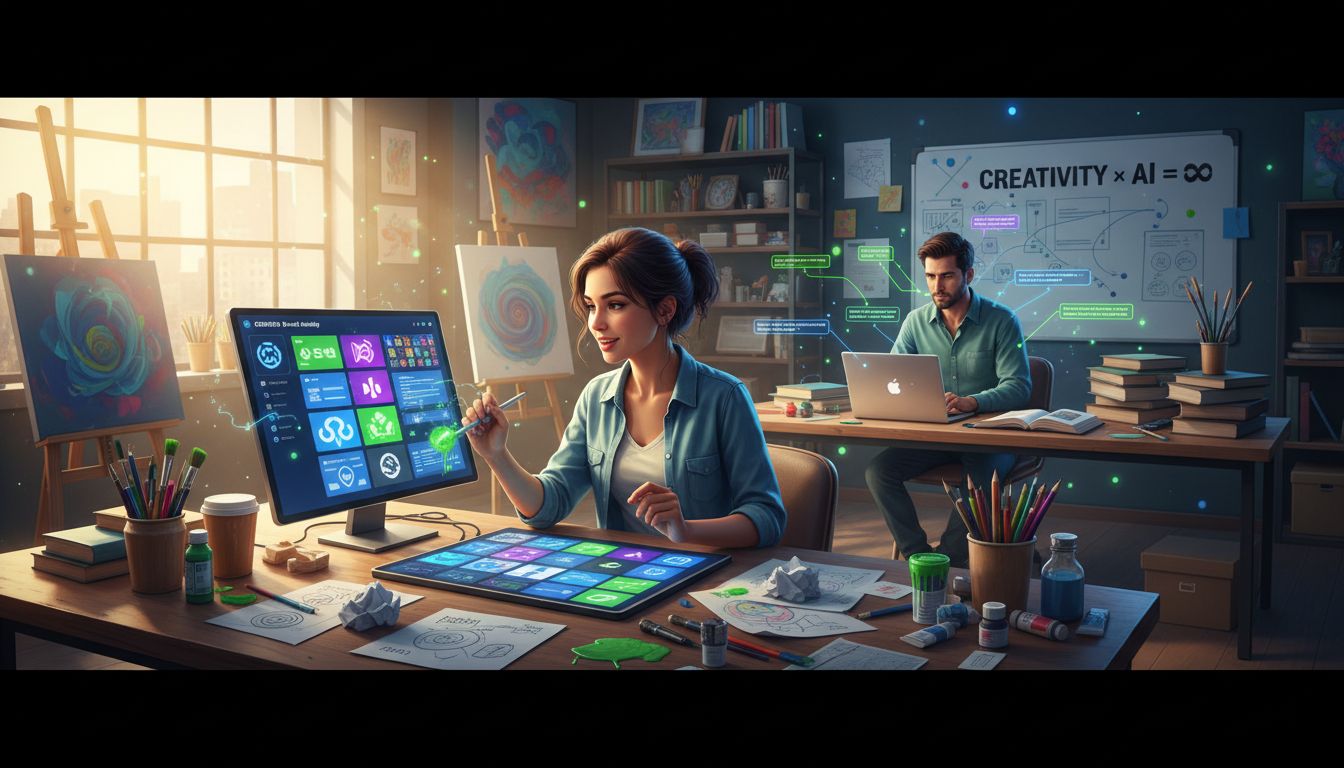
The Office and Administrative World
This is where the impact is most direct and where AI’s impact is already being felt. AI is fantastic at scheduling meetings, transcribing notes, organizing data, and drafting standard emails. Many tasks that once filled an administrative assistant’s day can now be done instantly through AI automation.
So what happens to these roles? They evolve into something new. Instead of being task-doers, people in these positions become project managers and strategic organizers. They use Gen AI tools to create efficiency, freeing them up for higher-level work like planning events, managing budgets, and improving internal communication systems.
Their value shifts from doing the work to directing the work. It’s a move from the keyboard to the whiteboard, focusing on strategy instead of just execution. The future AI job in this sector will be about managing the systems that complete tasks.
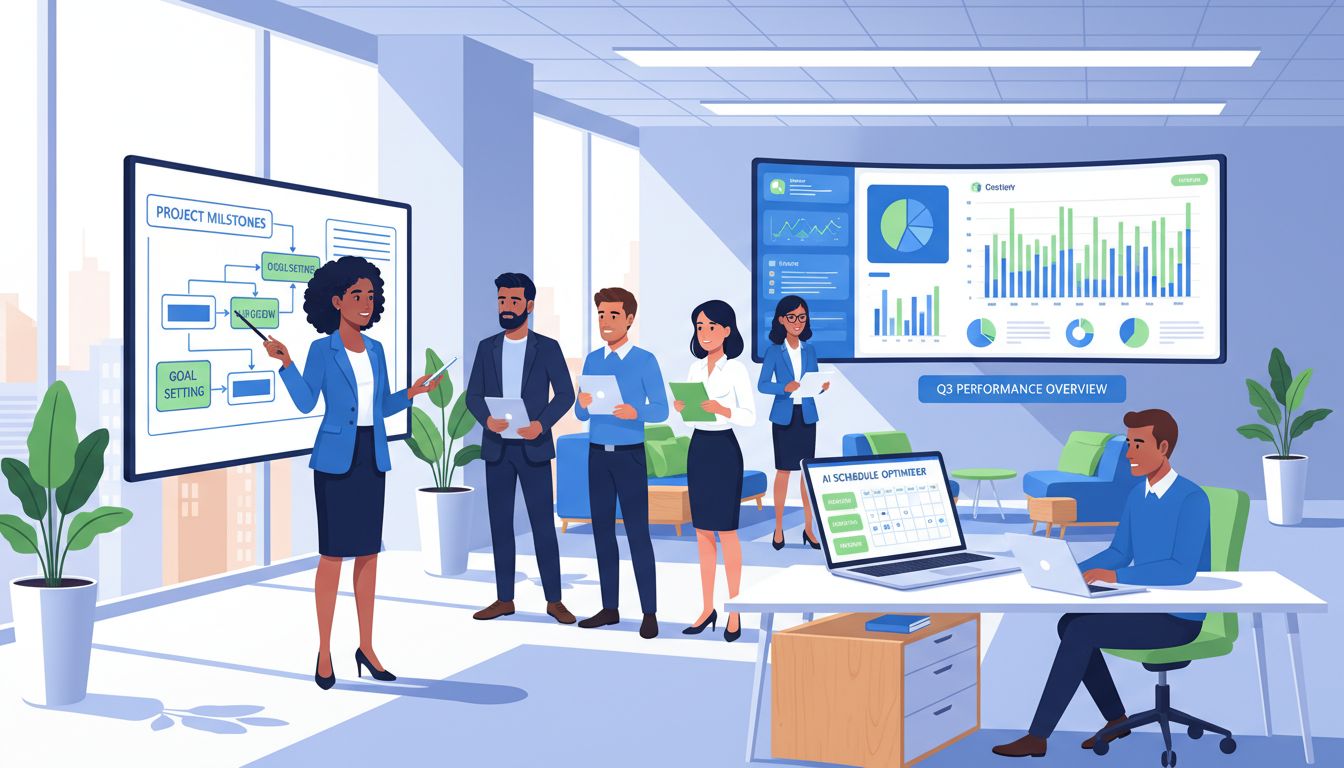
Healthcare and Technology
In fields like healthcare, AI is not a replacement but a lifesaver. AI algorithms can analyze medical scans like X-rays and MRIs to spot signs of disease far earlier than the human eye can. This helps doctors make faster, more accurate diagnoses based on huge amounts of AI data.
AI is also accelerating the process of drug discovery and helping to create personalized treatment plans based on a patient’s genetics. A PwC analysis highlights how AI can lead to better health outcomes and a more efficient healthcare system. The doctor is still fully in charge; they just have a better set of tools to work with, thanks to technological advancements.
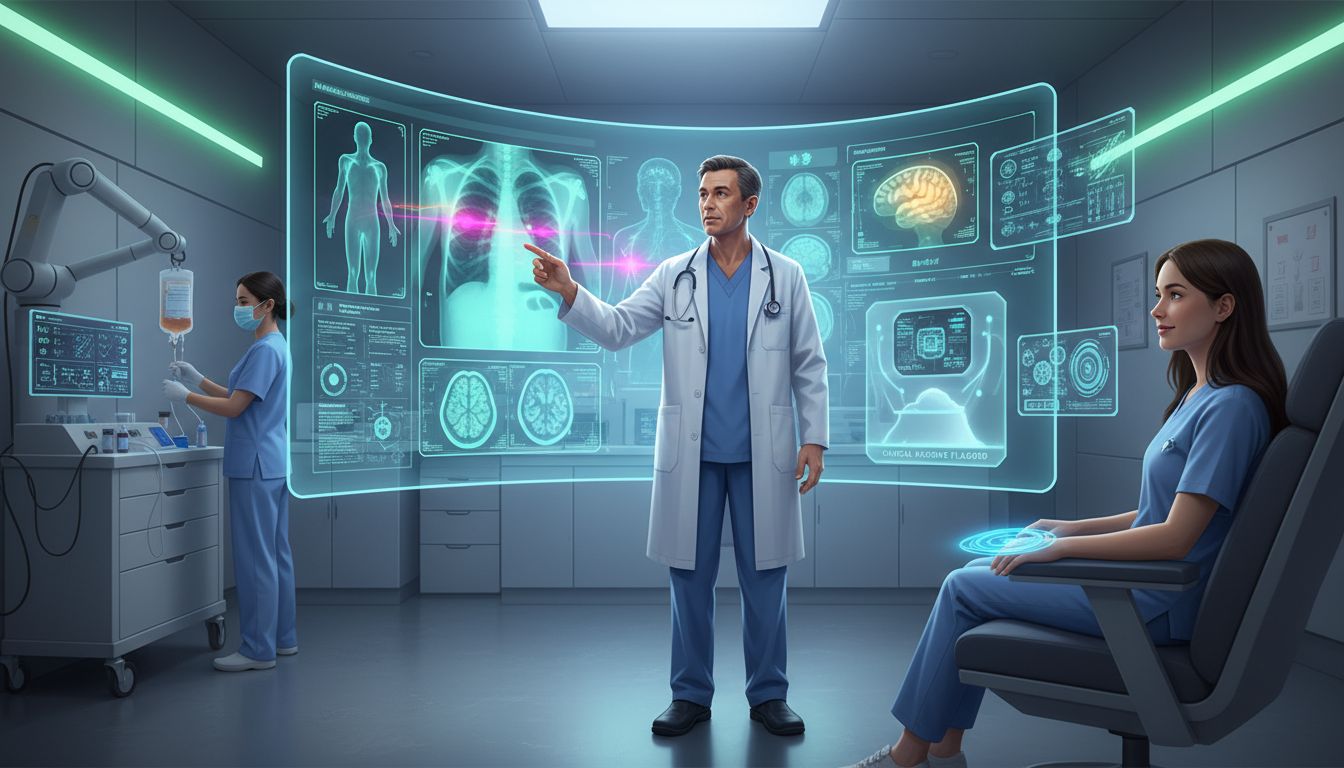
Customer Service & Retail Jobs
Customer service is another area where the impact of artificial intelligence is obvious. AI-powered chatbots now handle a large percentage of initial customer inquiries, answering common questions and guiding users to resources.
This has changed the role of human customer service agents significantly. Agents now spend less time on simple, repetitive queries and more time on complex, high-stakes problems that require empathy and critical thinking.
The same is true for retail jobs. AI impacts inventory management and personalized marketing, but the human element is still crucial for closing sales and building customer loyalty.
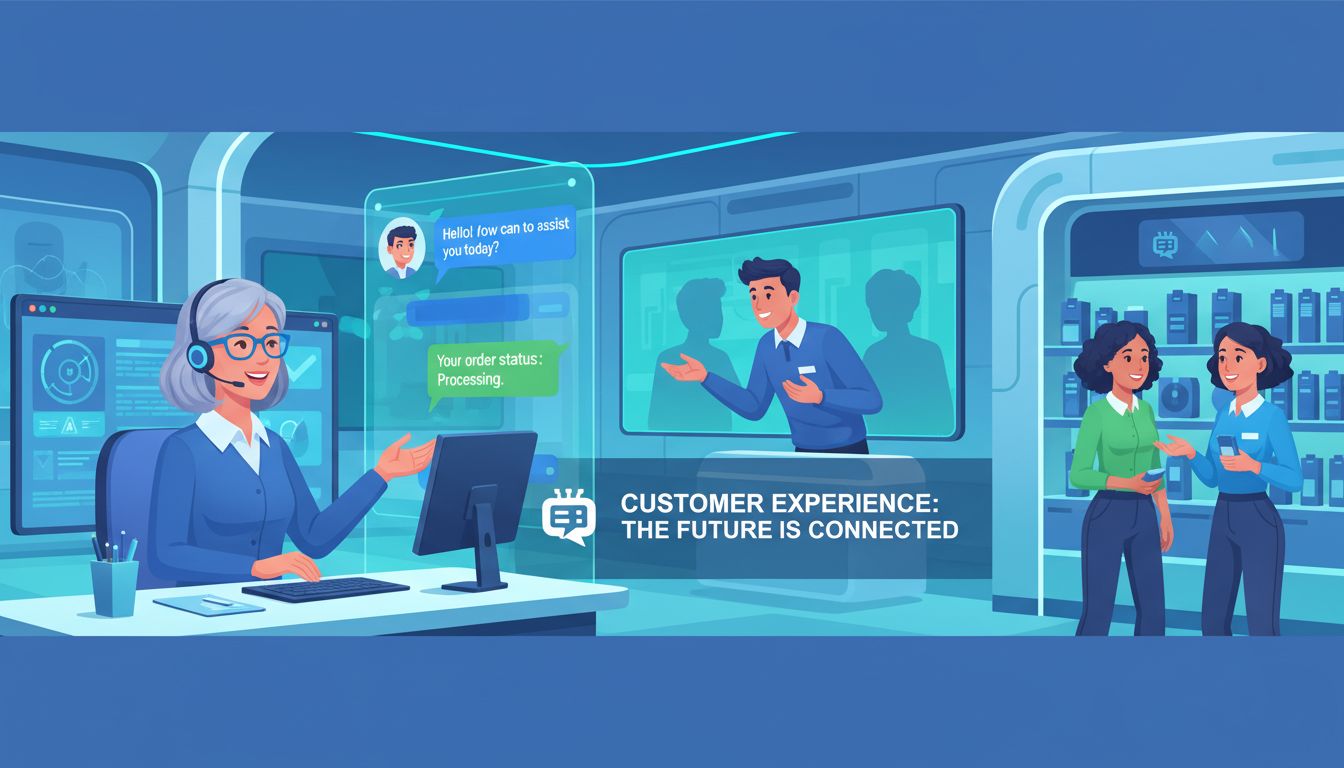
Transportation and Manufacturing
The rise of autonomous vehicles is a clear example of how AI is poised to reshape an entire industry. While fully self-driving trucks are still on the horizon, AI is already improving logistics, optimizing delivery routes, and enhancing safety features. This technological change will eventually alter the job market for drivers and logistics coordinators.
Similarly, manufacturing workers have been dealing with automation for decades. Machine learning and AI are the next step, creating “smart factories” that can predict maintenance needs and adjust production lines in real time. This requires a workforce with more technical and analytical skills.
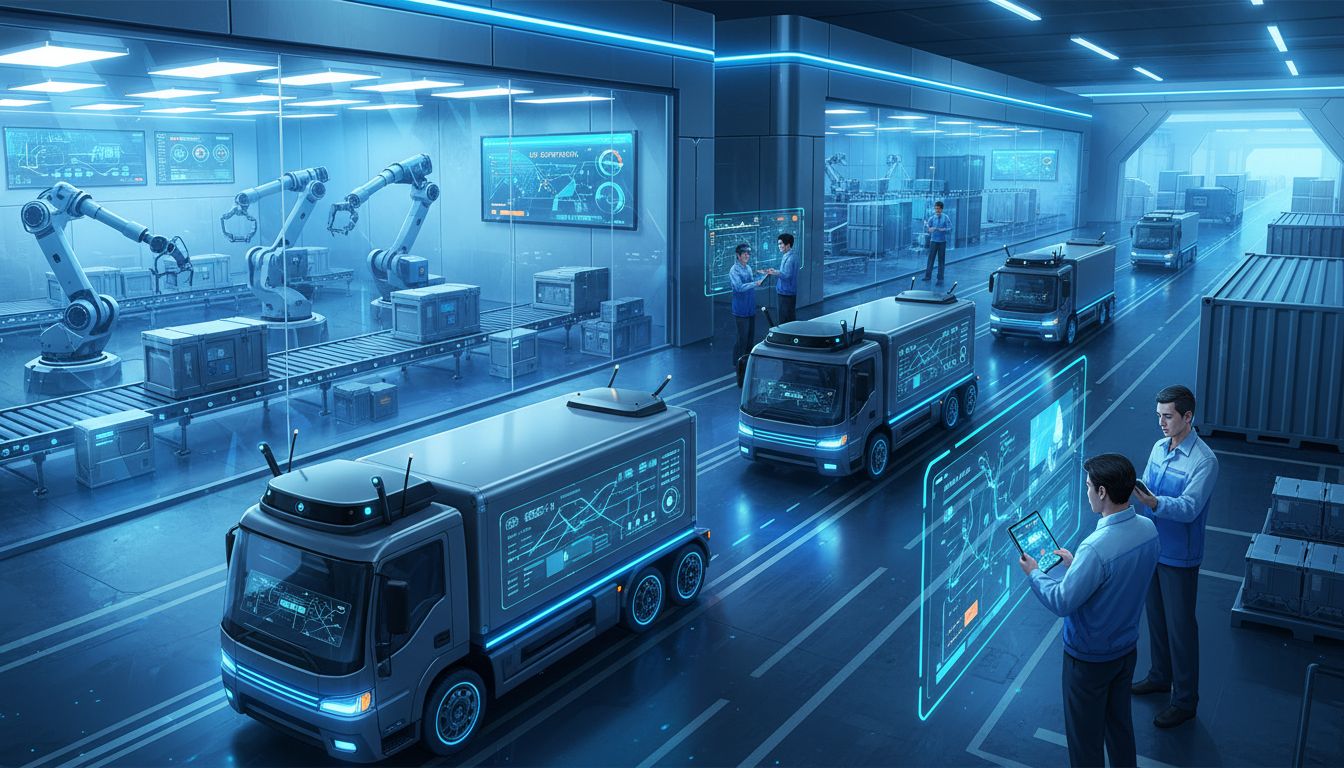
How to Stay Relevant in the Age of AI
So, you see the wave of change coming. How do you ride it instead of getting swept away? The answer is simple: keep learning and adapting.
The idea of finishing your education and then working for 40 years is over. We are all now in a state of continuous learning, or we risk being left behind. You don’t need to become a programmer, but you do need to cultivate the skills that machines can’t copy.
Here are some areas to focus on for your own professional development. These are the human skills that have become more valuable as AI becomes more common. Focusing on these can help both younger and older workers thrive.
- Critical Thinking: AI can perform data analysis, but it can’t tell you what it means for your business strategy. The ability to analyze information, ask tough questions, and make sound judgments is a human strength.
- Creativity: True innovation and out-of-the-box thinking are human domains. AI is great at combining existing ideas, but coming up with something entirely new requires a human spark.
- Emotional Intelligence: Empathy, persuasion, and collaboration are at the core of human interaction. Machines can’t build trust with a client or inspire a team. These soft skills are becoming the new hard skills.
- AI Literacy: You have to learn how to use the new tools. Get comfortable playing with different AI programs and additional software. Understand their strengths and weaknesses so you can use them effectively in your job.
- Specialized Skills: Deep expertise in a specific field becomes even more valuable. AI can provide general knowledge, but it can’t replicate the insights gained from years of hands-on experience and specialized training.
Think of it as learning how to use a computer in the 1990s. At first, it was a specialized skill. Now, it’s a basic expectation for almost any job.
Conclusion
The anxiety around the AI impact on jobs is completely understandable, but it is often misplaced. AI is not the villain from a science fiction movie plotting to make humans obsolete. It is a tool, and like any tool, its employment effects depend entirely on how we choose to use it.
The future of work won’t be a battle of humans versus machines. It will be a partnership between humans and machines, with each focusing on what they do best.
The AI impacting the job market is undeniable, but it’s creating as many opportunities as it is challenges. By embracing lifelong learning and focusing on our irreplaceable human skills, we can not only survive but thrive.
